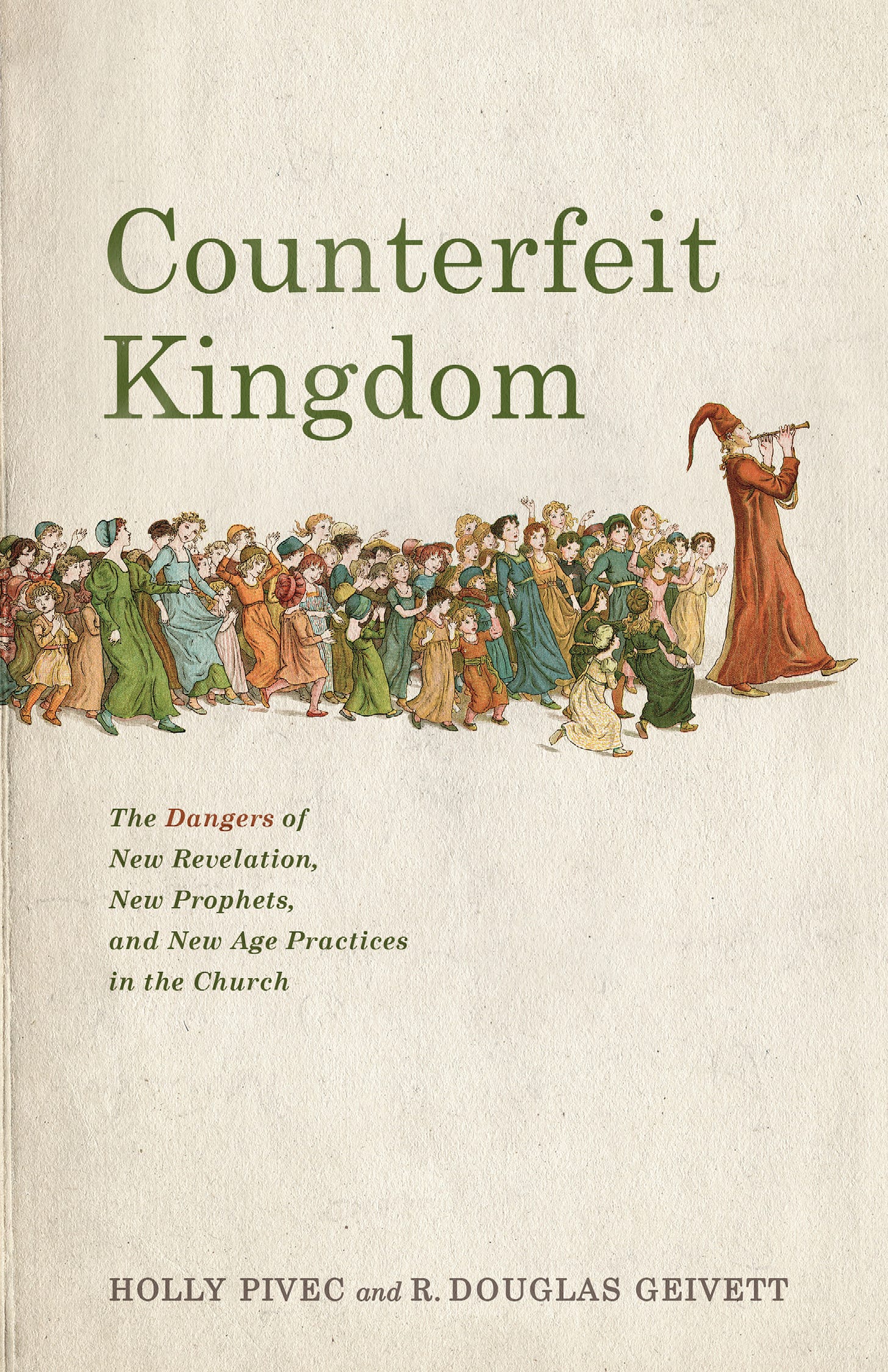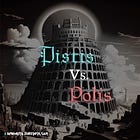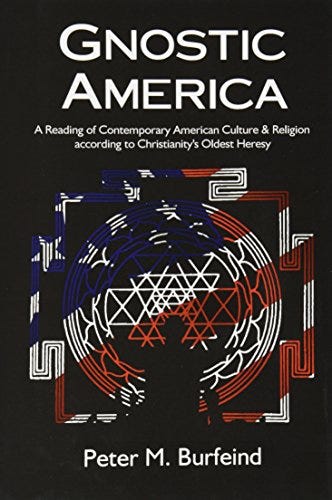On demons & deliverance from the kingdom of darkness…
― 1st Epistle to the Corinthians 14:8 KJV
Related Entries
In previous installments of this series, I have laid a robust foundation for understanding the necessity and the nature of spiritual warfare: our journey through the armamentarium of the Faith is far from over however. In this third and final entry, we turn our focus to the practical and theological aspects of exorcism, also called deliverance; an often misunderstood yet crucial aspect of spiritual warfare. It is not enough to recognize the existence of our spiritual enemies — we must also be adept in the tactics that Scripture prescribes for their defeat.
We will explore the Biblical precedents for deliverance, from the exorcisms performed by Jesus Christ, the apostolic encounters with demonic entities, to the testimony of the early Church. These accounts are not mere historical footnotes, but blueprints for contemporary practice. Moreover, I must thoroughly address the misconceptions and false teachings that have muddled the waters on demonic deliverance — and who it is for.
It is imperative that we clear the theological fog of war with the piercing light of Scripture.
“11 Strengthened with all might, according to his glorious power, unto all patience and longsuffering with joyfulness;
12 Giving thanks unto the Father, which hath made us meet to be partakers of the inheritance of the saints in light:
13 Who hath DELIVERED us from the power of darkness, and hath translated us into the kingdom of his dear Son:”
— Epistle to the Colossians 1:11-13 KJV
As we see chronicled in the Gospels, Jesus Christ’s exorcism ministry exemplifies a divine authority that starkly contrasts with the contemporary approaches to modern day deliverance ministries.
In an epoch rife with demonic affliction, Christ’s interventions were marked by their simplicity and immediacy. His exorcisms were not protracted rituals or hours-long struggle sessions, but definitive commands that expelled evil spirits with a mere word — acts which authenticated His divine authority (Mark 1:25-27). These were an irrefutable demonstration of His messianic identity, as well as the inauguration of the Kingdom of God (emphasis mine):
20 But if I with the finger of God cast out devils, no doubt the kingdom of God is come upon you.
— The Gospel of Luke 11:20 KJV
Just as the King expelled evil spirits with a mere command, so too did His Apostles follow suit, demonstrating the undiminished potency of His mandate:
12 And by the hands of the apostles were many signs and wonders wrought among the people; …
15 Insomuch that they brought forth the sick into the streets, and laid them on beds and couches, that at the least the shadow of Peter passing by might overshadow some of them.
16 There came also a multitude out of the cities round about unto Jerusalem, bringing sick folks, and them which were vexed with unclean spirits: and they were healed every one.
— Acts of the Apostles 5:12, 15-16 KJV
Scripture unequivocally establishes that the authority to cast out demons is inherent in the name of Jesus Christ and accessible only to those who wield it in faith (Matthew 17:19-20, Acts 19:13-16) — regardless of the spiritual state of the afflicted.
In the contemporary discourse on spiritual warfare, figures like Vlad Savchuk, Isaiah Saldivar, and various other deliverance ministers assert that deliverance, i.e. exorcism, is exclusively for believers. They contend that demons have legal rights over unbelievers:
Argument #1 – Deliverance is only for unbelievers.
Demons have legal rights to the unbeliever.
— Vlad Savchuk, Deliverance From Demons e-course
Savchuk’s Scripture-free assertion that deliverance is not for unbelievers is a wicked rejection of a clear-cut Biblical doctrine. The argument proffered by these so-called “demon slayers” state that demons have legal rights over unbelievers, thereby excluding them from the need or benefit of deliverance. However, a thorough examination of Scripture, and the writings of the early Church Fathers, reveals a very different tale.
In Acts 16 we find a powerful narrative that refutes these claims in no uncertain terms (emphasis mine):
16 And it came to pass, as we went to prayer, a certain damsel possessed with a spirit of divination met us, which brought her masters much gain by soothsaying:
17 The same followed Paul and us, and cried, saying, These men are the servants of the most high God, which shew unto us the way of salvation.
18 And this did she many days. But Paul, being grieved, turned and said to the spirit, I command thee in the name of Jesus Christ to come out of her. And he came out the same hour.
— Acts of the Apostles 16:16-18 KJV
Paul’s exorcism of this spirit was not contingent upon this pagan’s faith or faithfulness, and notice he did not have to scream or assault her. Scripture makes no mention of this concept of “legal rights” either: such claims are essentially a form of charismatic legalism. This passage clearly demonstrates that deliverance is an act of divine authority over evil, irrespective of the individual’s belief.
The patristic testimony of the early Church also provides an overwhelming amount of evidence that contradicts Savchuk’s claim (emphasis mine):
For some do certainly and truly drive out devils, so that those who have thus been cleansed from evil spirits frequently both believe [in Christ], and join themselves to the Church.
— Irenaeus, Against Heresies, Book II, Ch. 32.4
Irenaeus notes here that deliverance often led to faith and integration into the Church, thereby implying that the act of deliverance is not exclusive to those already within the faith. Likewise, Justin Martyr emphasizes that believers possess the authority to exorcise demons (emphasis mine):
[Christ] said, ‘I give unto you power to tread on serpents, and on scorpions, and on scolopendras, and on all the might of the enemy.’ And now we, who believe in our Lord Jesus, who was crucified under Pontius Pilate, when we exorcise all demons and evil spirits, have them subjected to us.
— Justin Martyr, Dialogue with Trypho, Ch. 76
Clearly, this was a practice that is focused towards those outside of the Father’s flock, not within. Tertullian too articulates that the authority to expel demons is in the power of all of the servants of Christ, one that does not require hours to accomplish (emphasis mine):
Why, all the authority and power we have over them is from our naming the name of Christ, and recalling to their memory the woes with which God threatens them at the hands of Christ as Judge, and which they expect one day to overtake them. Fearing Christ in God, and God in Christ, they become subject to the servants of God and Christ. So at our touch and breathing, overwhelmed by the thought and realization of those judgment fires, they leave at our command the bodies they have entered, unwilling, and distressed, and before your very eyes put to an open shame.
— Tertullian, Apologeticum, Ch. 23
The practice of deliverance put forward here underscores the omnipotence of Christ over all demonic forces.
The assertion that deliverance is not for unbelievers is untenable when scrutinized against the full counsel of Scripture and the testimony of the early Church Fathers.
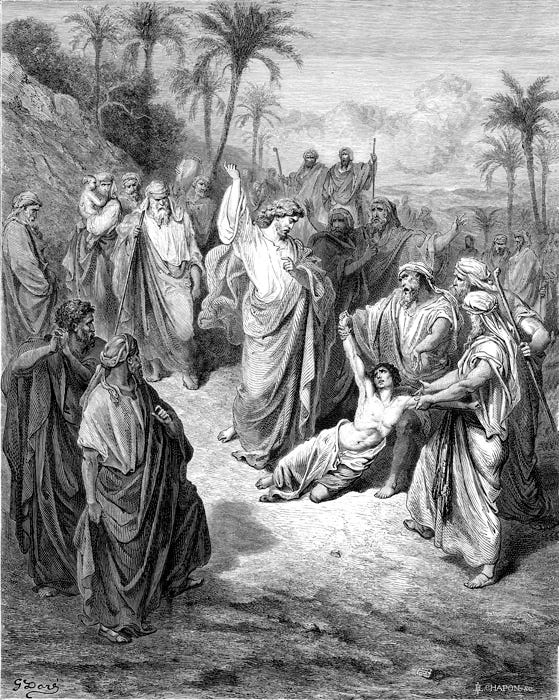
Now we must address the even more audacious claim proffered by these deliverance ministers, that demons can inhabit the body of one who has been baptized into Christ:
Argument #2 – The Holy Spirit and demon can’t live in the same person.
The Holy Spirit lives in our spirit but demons can live in our soul.
— Vlad Savchuk, Deliverance From Demons e-course
This equally Scripture-free assertion relies upon a trichotomist view of human ontology, one which I must expound upon before addressing whether a demon can inhabit a believer or not.
The trichotomist view posits that the spirit and soul are distinct entities within the human person: the body is “the shell of the soul, which in turn forms the sheath of the spirit.” (The Spiritual Man, Nee, Pg. 162) It is a claim that ostensibly rests upon an exceedingly thin veneer of scriptural proof-texts, 1st Thessalonians 5:23 & Hebrews 4:12. The rest of Holy Scripture, in contrast, consistently delineates a dichotomous view of humanity. In Matthew 10:28, our Lord Himself speaks plainly: “fear not those who kill the body but cannot kill the soul.” Here, there is no mention of a separate spirit, for the soul encompasses the entirety of the immaterial self. Genesis 2:7 further cements this understanding: “man, formed from the dust and animated by the breath of God, became a living soul.” The text shows no trichotomous division; it speaks of body and soul, material and immaterial, in harmonious unity.
This doctrine errs grievously in its interpretation of sanctification, ascribing to it an unnecessary and unfounded complexity. When the Apostle Paul prays for the sanctification of spirit, soul, and body in 1st Thessalonians 5:23, he uses it to invoke a comprehensive transformation, not a tripartite ontology. Paul is quoting Plato to a Greek audience who would have been familiar with this phrase; it is seriously stretching the text to assert that he was setting forth an ontology at odds with the Hebraic understanding of man. The holistic sanctification Paul envisions encompasses the entire being — spiritual renewal, mental transformation, and physical preservation. This trifold expression is assuredly not an ontological assertion of separateness, but rather, it is a rhetorical flourish and relevant cultural example emphasizing the comprehensive nature of sanctification.
In this way, the trichotomist stance clashes with the integrated perspective of ancient Hebrew ontology, one which viewed humans as a unified whole. Nephesh and ruach — the soul and spirit — were not separate entities, but intertwined aspects of a singular spiritual essence: Scripture often employs such terms interchangeably. In Leviticus 21:11 for instance, the word nephesh is used to describe a dead body. The same Apostle Paul who penned the epistle to Thessalonica also proclaimed in Hebrews 4:12 the Word’s ability to divide soul and spirit, much as it separates joints and marrow. Shall we then posit that joints and marrow are bifurcated essences within the human frame, as opposed to intertwined and cohesive components? Such reasoning collapses under the weight of its own absurdity.
The seamless interplay of spirit, soul, and body within Holy Writ underscores their functional unity, not their division.
“4 For whatsoever is born of God overcometh the world: and this is the VICTORY that overcometh the world, even our faith.
5 Who is he that overcometh the world, but he that believeth that Jesus is the Son of God?”
— 1st Epistle of John 5:4-5 KJV
Savchuk’s audacious claims that demons can inhabit a Christian’s soul, while sparing the spirit, is nothing short of theological chicanery. I will let him expound upon his views on the matter:
Can a Christian have a demon?
I believe a born again believer can have a demon but a demon can’t have him. Christians can be oppressed but not possessed by the devil. For example, my wife and I have had other people live with us in our home for as long as I can remember. These renters were not owners of my property. They had a room that they lived in and a common space we occupied. They also had a key which I gave them. And that’s how demonic oppression in a believer works. Certain demons that influenced either previous sins before we were saved, or else recent ones, acquired the key to certain parts of our life. Jesus is the owner. He occupies the master suite but they can still have access to some guest rooms. Unless you evict them and change the locks, they will continue to come and cause torment. …
If you attempt to cast out a demon from an unbeliever, it’s like trying to force an owner out of his own house. Even if you do succeed by sheer force, it’s illegal, and you will go to jail for it because the owner of the house has a right to live there. During the exorcism, the demons will scream “this person is mine.” You can quote all the verses you want, but if that person is not born again, deliverance will not happen unless that person repents.
— Vlad Savchuk, Frequently Asked Questions About Deliverance
Savchuk’s analogy of demons as renters in a house owned by Jesus implies that distinct parts of a believer’s body can remain under demonic influence despite Christ’s ownership. While it is certainly inventive, it has precisely nothing to do with, and is contradictory to, the Scriptures.
The Apostle Paul, in his epistles to the church at Corinth, makes it abundantly clear that the indwelling of the Holy Spirit leaves no quarter for demonic habitation:
Do you not know that you are God’s temple and that God’s Spirit dwells in you?
— 1st Epistle to the Corinthians 3:16 KJV
19 What? know ye not that your body is the temple of the Holy Ghost which is in you, which ye have of God, and ye are not your own?
20 For ye are bought with a price: therefore glorify God in your body, and in your spirit, which are God’s.
— 1st Epistle to the Corinthians 6:19-20 KJV
John the Revelator states it just as plainly (emphasis mine):
This then is the message which we have heard of him, and declare unto you, that God is light, and in him is no darkness at all.
— 1st Epistle of John 1:5 KJV
This indwelling is total and unassailable, leaving no room for demonic cohabitation: if we are in Christ, and Christ’s Spirit in us, than no darkness can abide. Believers are sealed with the Holy Spirit, signifying God’s ownership and protection. Savchuk and others’ notion of a bifurcated human nature, where demons can lodge in the soul while the spirit remains untouched, is a contrivance utterly devoid of Scriptural backing. It is a specious argument that echoes the errors of ancient philosophers such as Plato which sought to divide the human person in ways the Bible never endorses.
Scripture does make it clear that evil spirits can harass, i.e. oppress, believers. But we are also told that by submitting to God, we can resist the Devil (emphasis mine):
Submit yourselves therefore to God. Resist the devil, and he will flee from you.
— Epistle of James 4:7 KJV
This dual instruction is a proactive stance against spiritual adversaries, emphasizing the believer’s agency in spiritual warfare. The promise embedded within this exhortation is one of assurance: steadfast resistance to the Devil compels his retreat. Paul too, in his epistle to the Corinthians, addresses the universal human experience of temptation:
There hath no temptation taken you but such as is common to man: but God is faithful, who will not suffer you to be tempted above that ye are able; but will with the temptation also make a way to escape, that ye may be able to bear it.
— 1st Epistle to the Corinthians 10:13 KJV
Implicit within this promise to all believers is God’s providential provision: amidst trials and tribulations, He has already prepared a way for our escape, thereby fortifying believers with the resilience to endure and to overcome.
Moreover, Savchuk’s teachings undermine the transformative power of regeneration. In Titus 3:5, Paul writes,
He saved us, not because of works done by us in righteousness, but according to his own mercy, by the washing of regeneration and renewal of the Holy Spirit.
This renewal is comprehensive, permeating every facet of the believer’s existence. To suggest that a demon can reside in a Christian’s soul is to impugn the efficacy of this renewal and to question the completeness of Christ’s victory over sin and Satan (Colossians 2:15).
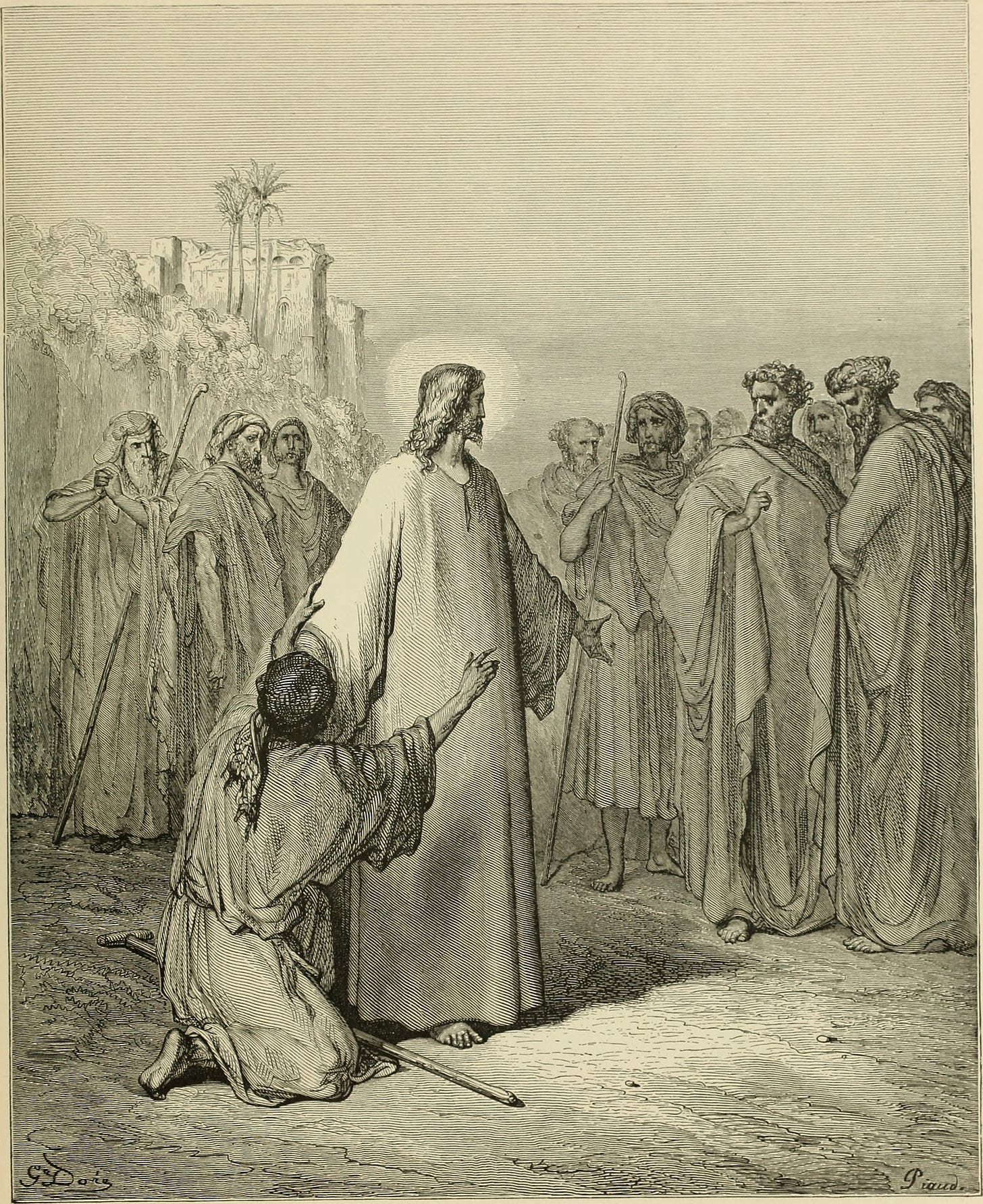
Savchuk’s claims are not new, many heretics have made such claims throughout the ages. In Contra Celsum, Origen defends the Christian faith by asserting the practical application of James’ and Paul’s teachings in confronting Celsus (emphasis mine):
In this way, Celsus seeks to degrade our souls to the worship of demons, under the assumption that they have possession of our bodies, and that each one has power over a separate member. … The honour of the Most High God, which cannot be divided or shared with another, is so lightly esteemed by him, that he cannot believe in the ability of God, if called upon and highly honoured, to give to those who serve Him a power by which they may be defended from the assaults directed by demons against the righteous. For he has never beheld the efficacy of those words, in the name of Jesus, when uttered by the truly faithful, to deliver not a few from demons and demoniacal possessions and other plagues.
— Origen, Contra Celsum, Ch. 8.58
God’s sovereignty is never more evident than in spiritual warfare. Believers, through their submission and trust in God’s faithfulness, are given the strength to resist and overcome these demonic influences.
Modern deliverance ministries, under the guise of Christian spiritual warfare, subtly perpetuate a form of Neo-Platonism, echoing the ontological trichotomy of Plato’s ancient teachings. Derek Prince, a prominent figure in this movement, mirrors the language of Plato’s Phaedo with uncanny precision:
…Prince’s later teaching on deliverance reproduces the language of Plato’s Phaedo almost verbatim. The Phaedo proclaimed a disjunction between two spheres of existence, the changing world of the visible and ‘the unchanging things you can only perceive with the mind’. Similarly, Prince, in one of his most substantial books, Blessing or Curse: You Can Choose, taught that ‘The things that belong to the visible realm are transitory and impermanent. It is only in the invisible realm that we can find true and abiding reality. It is in this realm, too, that we discover the forces which will ultimately shape our destiny, even in the visible realm’.
Or again:“A lot of people imagine that what we see, touch, hear and taste are the only truly real items. Down through the ages, however, philosophers have come to the conclusion that what we see, touch, hear and taste are not truly real; they are temporary, and they are very often deceptive. These philosophers have warned us that you cannot rely on your senses.”
Plato shared with much Greek thought a belief in the existence and polluting capacity of ancestral curses. In his Phaedrus he refers in passing to ‘grievous maladies and afflictions’, which ‘beset certain families by reason of some ancient sin’.
— Brian Stanley, From Plato to Pentecostalism: Sickness and deliverance in the theology of Derek Prince
Prince’s teachings, like those of Plato, suggest that the material world is deceptive, wicked, and impermanent. This alignment extends to the notion of ancestral curses, with Prince attributing persistent familial afflictions to ancient sins, paralleling Plato’s references to inherited maladies. Thus, modern deliverance ministries, while ostensibly rooted in Christian doctrine, often espouse a worldview and anthropology that is more akin to Gnosticism and Neo-Platonism. In propagating such doctrines, Savchuk and his ilk not only distort the nature of demonic influence but also undermine the sufficiency and power of Christ’s redemptive work.
To put it simply, the claim that demons can inhabit and control but not “possess” a believer is sophistry that lacks any Scriptural support.
“A wise man is STRONG; yea, a man of knowledge increaseth strength.”
— The Book of Proverbs 24:5 KJV
In contrast to the simple and immediate efficacy of exorcisms within Scripture, modern deliverance ministries almost always devolve into theatrics and sensationalism. Where as Christ exhibited His serene authority, many contemporary practices are mired in elaborate ceremonies and emotional extravagances. This hyper-focus on the demonic turns the name of Jesus Christ into a means to an end, perpetuating fear and confusion rather than faith and freedom. In contrast to the liberating Gospel of Christ, modern deliverance ministries emphasize confrontations with evil spirits above the sanctification of their flock.
Savchuk and his crew are not even in line with historic Pentecostal teachings on this matter (emphasis mine):
A significant number of Pentecostal writers have traditionally made a distinction between demonic possession and demonic ‘influence’ but have categorically denied that Christians could have an evil spirit which was somehow ‘indwelling’. This is clear in the official statement of the General Assembly of the Assemblies of God: ‘Can Born-Again Believers Be Demon Possessed?’ (Nottingham, May 1972). The condemnation of this doctrine has also been made very clear in a critique of the practice of modern charismatics in one of the Assembly of God’s major publications.
— Stephen Hunt, Deliverance: The Evolution of a Doctrine
While I wholeheartedly agree that believers can still be oppressed, harassed, or influenced by these spirits (Acts 5:3), Savchuk’s assertions betray a profound misunderstanding of Scripture and stand in stark opposition to the unified testimony of the Bible.
The issue of false teachers leading believers astray for financial gain is one of continual focus within the teachings of the New Testament. “Demon-slaying” sure is big business, and with an increasingly paganized West, business is booming. According to StarStat, Vlad Savchuk’s YouTube channel alone has an estimated net worth of approximately $1.16 million, with monthly earnings of roughly $36,000. Similarly, StarStat estimates Isaiah Saldivar’s channel to be worth roughly $1.1 million, with monthly earnings clocking in at $19,000. Savchuk, Saldivar and his ilk propagate teachings that a Christian can be oppressed by demons, this despite clear scriptural evidence to the contrary. This not only demeans the comprehensive nature of Christ’s redemptive work, it also creates a perpetual need for deliverance services, which are clearly being monetized.
In His eternal wisdom, our LORD foresaw evil days such as these. After warning the flock about the hallmarks of a false teacher, Christ utters perhaps the most frightening words in the entire Bible (emphasis mine):
21 Not every one that saith unto me, Lord, Lord, shall enter into the kingdom of heaven; but he that doeth the will of my Father which is in heaven.
22 Many will say to me in that day, Lord, Lord, have we not prophesied in thy name? and in thy name have cast out devils? and in thy name done many wonderful works?
23 And then will I profess unto them, I never knew you: depart from me, ye that work iniquity.
— The Gospel of Matthew 7:21-23 KJV
These so-called deliverance ministers and prophets may believe or claim that their ability to cast out demons is proof of their standing with God. True faith is not demonstrated by outward miracles, but by a life of humble and obedient service to The LORD.
This dangerous doctrine must be categorically rejected as a grave departure from the historic Christian faith: the only thing these wolves are delivering their flock to is an even deeper bondage.
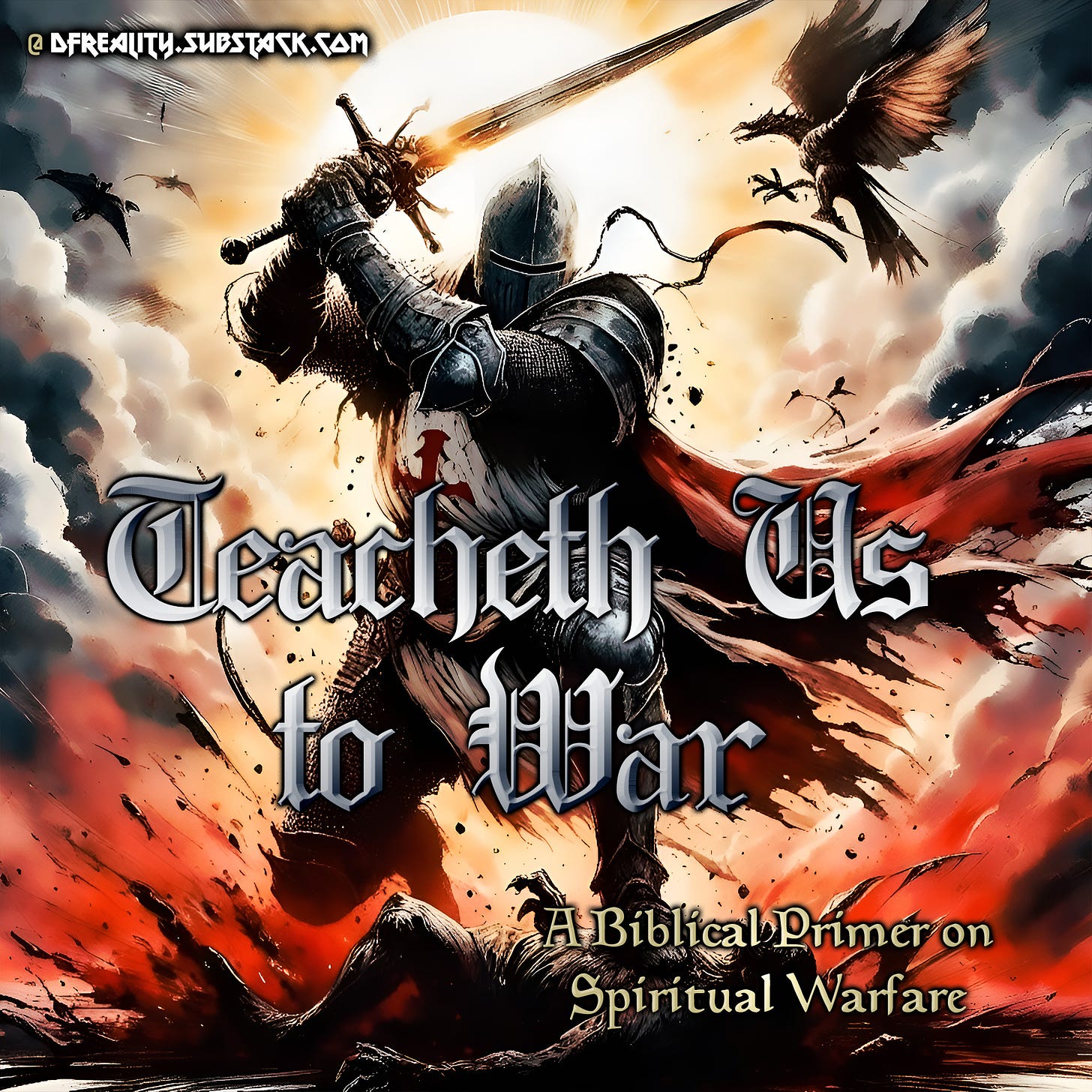
Epilogue
Amidst the landscape of modern Christendom, particularly within evangelical circles, we are witnessing the resurgence of Gnostic and occultic influences infiltrating the Church again. This isn’t a new phenomenon, but a recurring pattern seen throughout the history of Church. As Irenaeus of Lyon observed in the 2nd century, these heresies will often draw on mystical, extra-biblical revelations to distort and twist Scripture. Today, these insidious doctrines reemerge, undermining the very foundations of the faith. The teachings of Valentinus and his spiritual descendants are evident as centuries of Biblical truths are exchanged for “fresh” revelations, ones which often contradict the very essence of the Gospel.
The Christian’s battle is not solely against flesh and blood, but against principalities, powers, and spiritual forces of wickedness. This warfare requires more than earthly wisdom and strength — it demands the full armor of God. As Ephesians 6:10-11 reminds us, “Finally, my brethren, be strong in the Lord, and in the power of his might. Put on the whole armour of God, that ye may be able to stand against the wiles of the devil.” This armor includes the Belt of Truth, fortifying the believer’s integrity against deception; the Breastplate of Righteousness, guarding the heart from sin; the Sabatons of the Gospel, providing stability; the Shield of Faith, extinguishing the fiery darts of doubt; the Helmet of Salvation, protecting the mind; and the Sword of the Spirit — the Word of God — discerning truth from falsehood. As valiant warriors of the faith, let us press onward with unwavering resolve, discerning the spirits, and standing firm in the armor of God.
In an age where personal revelations and subjective experiences often overshadow timeless Biblical truths, it is imperative to anchor ourselves in the immutable Word of God.
“Be sober, be VIGILANT; because your adversary the devil, as a roaring lion, walketh about, seeking whom he may devour:”
— 1st Epistle of Peter 5:8 KJV
Further Research
